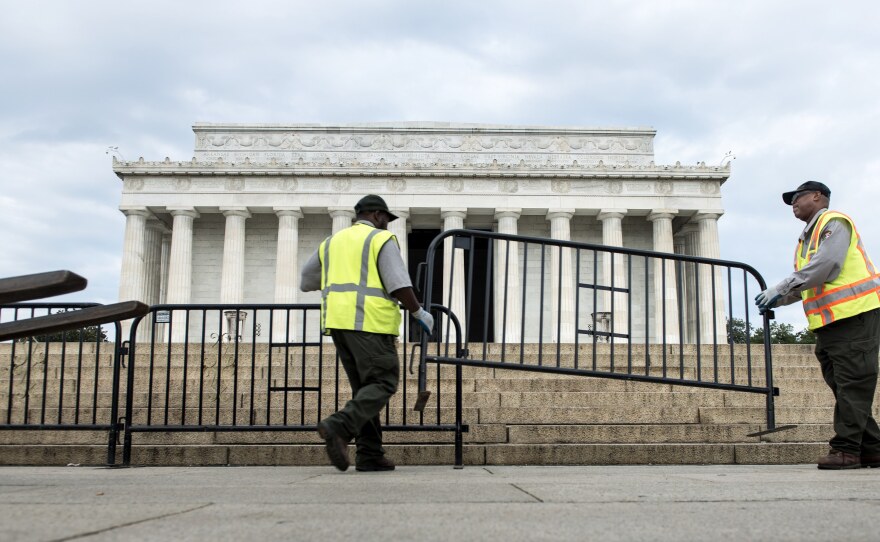


It's happened:
With lawmakers in Washington at loggerheads over the same issues they've been arguing about for more than five years, the federal government has partially shut down.
Mail will still be delivered, Social Security checks will still be mailed, the exchanges that are central to the the new health care law will still kick into gear Tuesday and other "essential" services will continue.
But an estimated 800,000 federal employees are being told they can't work because the politicians haven't been able to agree on a way to fund the government.
The Special Supplemental Nutrition Program for Women, Infants and Children (WIC) -- the "food stamps" program -- is expected to soon run out of money. The IRS will likely have to suspend audits and examinations of returns. New applications for Social Security and other benefits are likely to back up.
Washington's National Zoo says it will turn off its "panda cams" (they were still operating as of 5:30 a.m. ET Tuesday; but later in the morning were switched off). National parks and museums will be closed.
It's the first time since the dramatic twin shutdowns of 1995 and 1996 that political wrangling has led to such a shutdown. This time, the Republican-led House is insisting that any legislation to keep the government running also either defund or delay key elements of the president's health care programs. The White House and the Democratic-led Senate, meanwhile, are insisting that Republicans back off that demand.
There's no end in sight, NPR's David Welna reported on Morning Edition, to what's a game of budget ping pong between the two parties:
"We are not going to be bullied," Senate Majority Leader Harry Reid, D-Nev., declared.
"They simply ignore us," House Appropriations Committee Chairman Harold Rogers, R-Ky., said of the Democrats and their rejection of the GOP's post-midnight suggestion that a House-Senate conference committee try to hammer out a deal.
Meanwhile, even if the two sides do at some point in coming days come to an agreement that gets the government running again, there's another ominous battle looming: The federal government's "debt ceiling" must be lifted by Oct. 17 or it risks defaulting on its debts. Republicans have already signaled that they will try to block that from happening unless they get their way on Obamacare.
Copyright 2013 NPR. To see more, visit www.npr.org.






